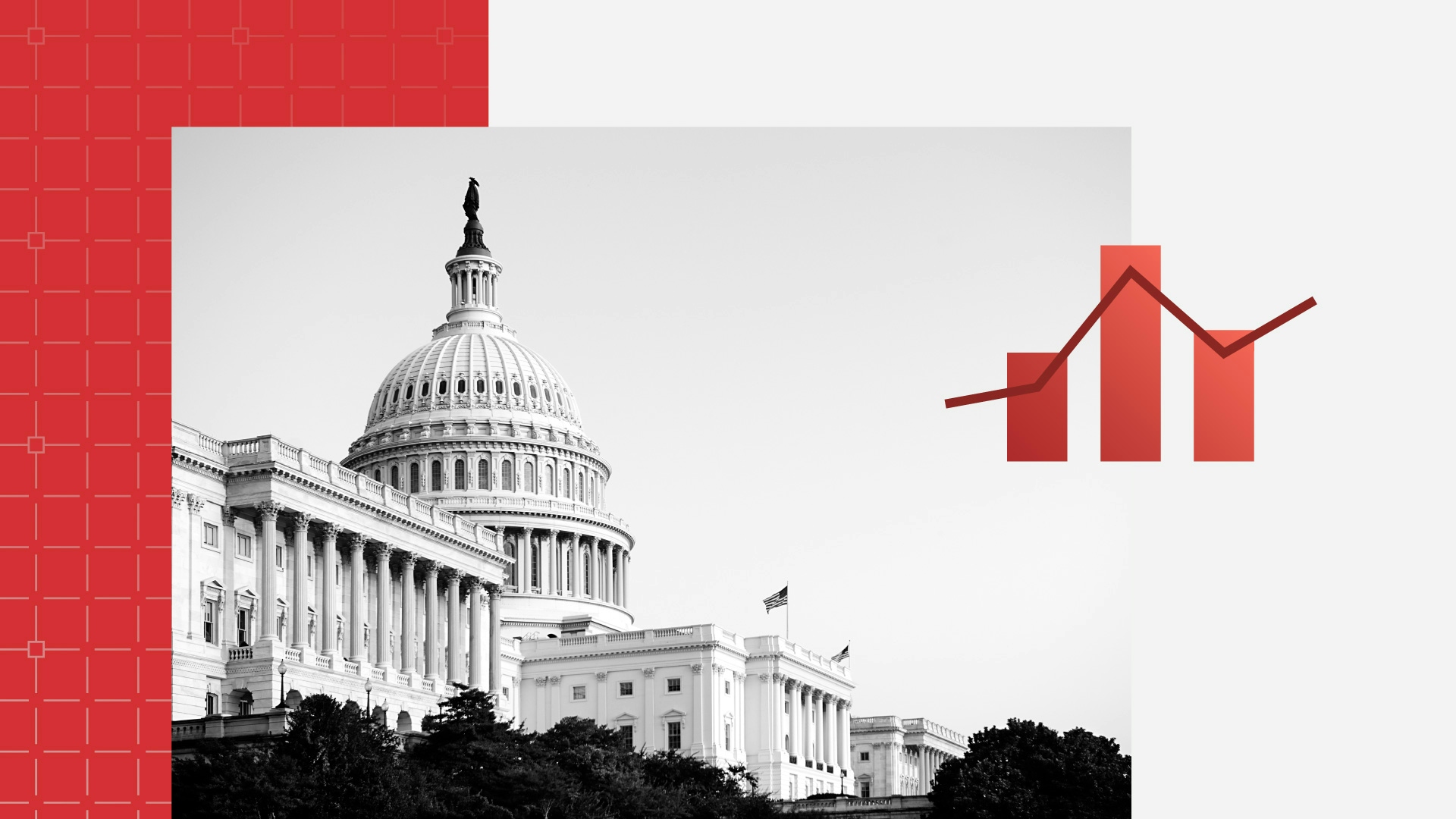Voters Back Deficit Spending Over Safety-Net Cuts to Pay for Tax Cuts

Data Downloads
Pro+ subscribers are able to download the datasets that underpin Morning Consult Pro's reports and analysis. Contact us to get access.
As Republicans in Congress try to push through their megabill on taxes, energy and border security, leaders are struggling to resolve differences between fiscal conservatives pushing for deficit neutrality and moderates hoping to stave off deep cuts to entitlement programs.
If that’s the choice — more deficit spending or slashing programs such as Medicaid and the Supplemental Nutrition Assistance Program (SNAP) — more voters than not would prefer Washington pull out its credit card.
More favor deficit spending than Medicaid/SNAP cuts to pay for GOP megabill

Our May 2-4 survey found that more voters prefer increasing the federal budget deficit than cutting Medicaid and SNAP to pay for an extension of tax cuts for individuals and businesses Republicans passed in 2017. Another 31% would not extend the tax cuts at all, while roughly a quarter were undecided.
This data is in line with our findings from February, with little movement among Democrats, independents or Republicans — the latter of whom are almost evenly divided over the matter, with 26% supporting deficit spending and 29% backing safety net cuts.
More broadly, very few voters support cutting or eliminating funding for Medicaid (14%) or SNAP (16%), nearly identical to what we saw earlier this year, with more than 3 in 4 in favor of at least maintaining or adding money to both programs.
Most voters, including many Republicans, continue to oppose safety-net cuts

When it comes to Medicaid in particular, less than 1 in 5 Republicans would support slashing or eliminating the spending, roughly in line to what we found in February, while the bulk of GOP voters (41%) would give the program more money.
The bottom line
This underlines a big problem for House Speaker Mike Johnson (R-La.), who is working to navigate pressure from the deficit hawks in safe districts who penned a letter to him this week demanding that the party’s reconciliation package “must not add to the deficit,” and front-line moderates who oppose deep Medicaid cuts as he tries to advance the party’s signature legislation unilaterally with a threadbare majority.
The speaker is likely ruling out two big Medicaid changes such as lowering the rate by which the federal government pays back states for Medicaid and caps for the Medicaid expansion population under Obamacare, as Punchbowl News reported, setting up a potential clash with the Senate, where Majority Leader John Thune (R-S.D.) has expressed support for the FMAP reduction, the outlet also noted.
In a Congress where moderate House Republicans are often forced to back hard-line policies at odds with their districts, this all sets up a scenario that would push them into even more uncomfortable political territory heading into next year’s elections, especially given the declines we’ve already measured in voters’ trust in Republicans to handle health care and other major entitlement programs.
Health care affordability is a higher voter priority than deficit reduction, tax cuts

And in an electorate that is far more likely to prioritize health care affordability than deficit reduction or an extension of Trump’s tax cuts, those conservatives pushing big reductions in spending on Medicaid and SNAP aren’t only out of step with the larger electorate — they’re also splitting the GOP’s base nationwide.
That latter point reflects a lack of consensus among Republicans in Washington on deficit spending in general. And it’s why you might expect Republicans to do what they did the last time they were in a similar position and facing a similar choice: push the country further into debt rather than touch the third rail of safety-net spending.
Eli Yokley is Morning Consult’s U.S. politics analyst. Eli joined Morning Consult in 2016 from Roll Call, where he reported on House and Senate campaigns after five years of covering state-level politics in the Show Me State while studying at the University of Missouri in Columbia, including contributions to The New York Times, Politico and The Daily Beast. Follow him on Twitter @eyokley. Interested in connecting with Eli to discuss his analysis or for a media engagement or speaking opportunity? Email [email protected].